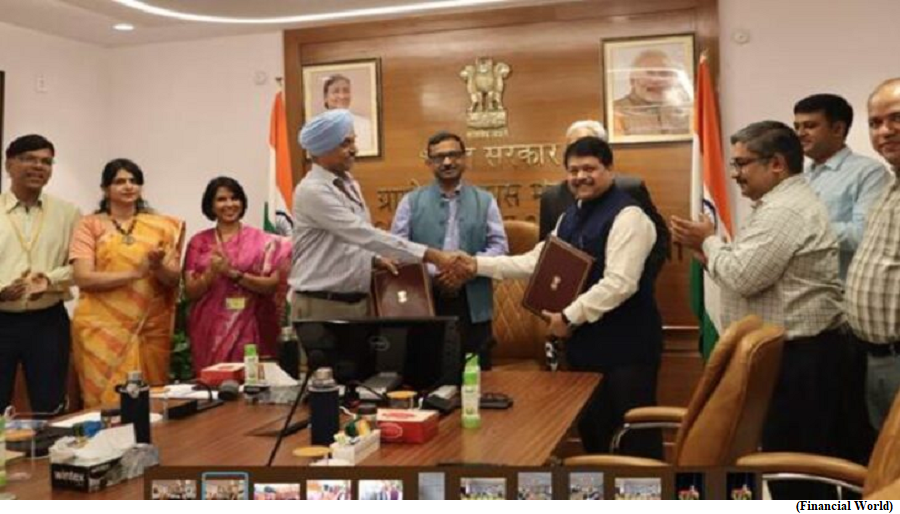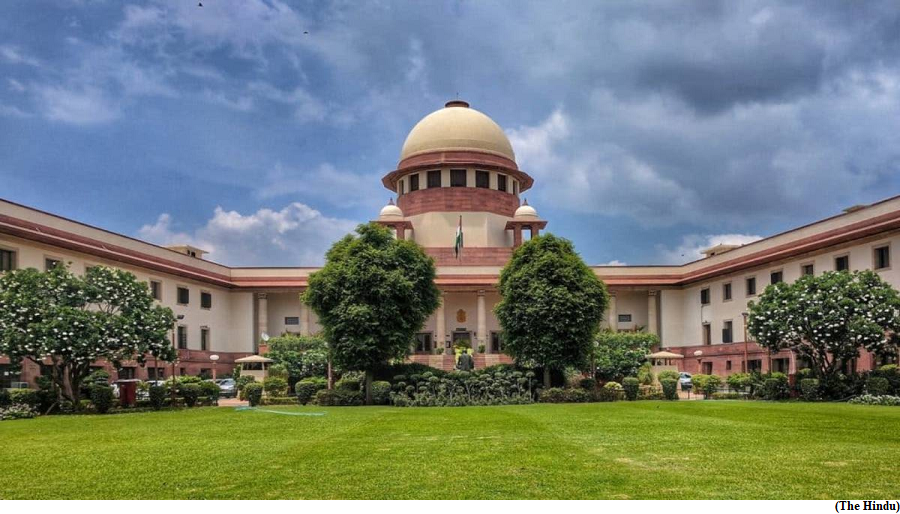DAY NRLM and SIDBI signed MOU (GS Paper 3, Economy)

Why in news?
- Deendayal Antyodaya Yojana - National Rural Livelihood Mission (DAY-NRLM) under the Ministry of Rural Development and the Small Industries Development Bank of India (SIDBI) recently signed a Memorandum of Understanding (MOU).
- This strategic partnership brings together the expertise of DAY-NRLM and SIDBI to create a transformative initiative aimed at promoting women-led enterprises among experienced members of Self Help Groups (SHGs).
Mandate:
- The primary focus of this collaboration is to demonstrate on-the-ground activities that establish a reliable and sensitive support structure for the capacity enhancement of women entrepreneurs (WEs).
- Furthermore, it aims to institutionalize standard protocols, systems, and procedures for streamlined access to formal finance, as well as the development of a comprehensive framework for new financial products and schemes.
Key outcomes expected from this collaboration are:
- Enhanced capacity and ability of State Rural Livelihood Missions (SRLM) teams to promote the graduation of seasoned SHG members into micro-entrepreneurs
- The establishment of a reliable and sensitive support architecture for women-led enterprises, involving a network of field cadres, mentors, and experts
- The implementation of standardized protocols within DAY-NRLM to support women-led enterprises
- The formation of partnerships with financial institutions and a network of financiers
- The design and implementation of new financial schemes, such as credit guarantees and interest subventions
- The creation of clear, scalable models for promoting women-led enterprises which can be replicated nationwide
Way Forward:
- By combining the strengths of DAY-NRLM and SIDBI, this initiative seeks to open up new avenues for women entrepreneurs, ultimately contributing to the economic growth and prosperity of the nation.
Bihar House passes Bill raising ceiling on caste quota to 65 percentage
(GS Paper 2, Governance)
Why in news?
- The Bihar Assembly recently unanimously passed a Bill to increase reservation for Backward Classes, Extremely Backward Classes, Scheduled Castes, and Scheduled Tribes from the existing 50% to 65%.
- Together with the 10% Economically Backward Class (EWS) quota, the Bill will push reservation in Bihar to 75%, well past the 50% ceiling set by the Supreme Court.

Key Highlights:
As per the Bihar Reservation Amendment Bill, quota
- for Extremely Backward Class (EBC) will be raised from the existing 18% to 25%;
- for Backward Class (BC) from 12% to 18%;
- for Scheduled Caste (SC) from 16% to 20%; and
- for Scheduled Tribe (ST), the quota will be doubled, from 1% to 2%.
- The existing 3% reservation for BC women has been scrapped.
- Bills providing for the same increase in reservation in educational institutions and government jobs, which were drafted based on the recent caste survey in the State, too were passed unanimously through voice vote in the State Assembly.
What’s next?
- The amended Bill will now be sent to the Governor for his assent before it becomes a law.
Speedy disposal of cases against lawmakers
(GS Paper 2, Judiciary))
Why in news?
- The Supreme Court recently issued guidelines to monitor the speedy disposal of criminal cases against Members of Parliament (MPs) and Members of Legislative Assemblies (MLAs).
- Among the guidelines issued to High Courts across the country, the court called for the setting up of a “special bench” to monitor criminal cases against legislators as well as suo motu registration of such cases by HCs.

What is this case?
- The directions were given by a Chief Justice of India-led bench while acting on a plea filed by advocate Ashwini Kumar Upadhyay.
- The plea filed in August 2016 sought speedy disposal of cases involving lawmakers.
- It also sought a lifetime ban on convicted politicians, including sitting legislators, from contesting elections rather than subjecting them to the six-year ban, as laid down under Section 8(3) of the Representation of People Act, 1951.
- Section 8 of the RP Act, 1951, mainly deals with the disqualification of lawmakers on conviction for certain offences.
What does the RP Act say?
- Introduced by Dr BR Ambedkar in the Parliament, the Representation of the People Act, 1951, provides for the conduct of elections to the houses of parliament and the legislatures of each state, the qualifications and disqualifications for membership of those houses, corrupt practices, and other offences taking place at or in connection with the elections.
- Although there are several provisions that deal with disqualification under the RPA, Section 8 specifically deals with disqualification of legislators on conviction for offences like promoting enmity between two groups, bribery, and undue influence, along with hoarding, profiteering, or adulteration of food or drugs.
- While the SC in its ruling addressed the first aspect of Upadhyay’s plea seeking speedy disposal of cases against MPs and MLAs, it kept open the issue of replacing the 6-year ban with a lifetime one.
Highlights of the judgement:
- The bench laid down guidelines for monitoring the early disposal of pending cases against lawmakers.
- Among these was the registration of suo motu cases by the chief justices of various high courts across the country to monitor the quick disposal of pending criminal cases against legislators.
- Adding that such cases can be heard by a CJ-led special bench or a bench designated by her, the court said that such cases can also be listed at regular intervals, if necessary. The special bench may also call upon the advocate general or prosecutor to assist the court.
- Stating that it would be difficult to lay down uniform guidelines for trial courts across the country to dispose of such cases, the court left it to the high court to devise measures to effectively monitor such cases.
- Further, the court said that priority shall be given to cases against lawmakers that are punishable with death or life imprisonment. Besides this, cases punishable with five years imprisonment or more will also be prioritised.




